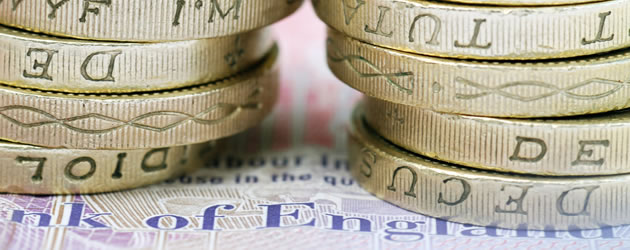Euro (EUR) Weakens despite Reassuring German Industrial Data
While the latest German Industrial Production figure bettered expectations, to clock in at 1.3% rather than 0.4%, the Pound Sterling to Euro (GBP/EUR) exchange rate has been trending higher around 1.2455 on Wednesday morning.
Earlier…
Despite a downwards revision of the Eurozone’s Services and Composite PMIs the Euro (EUR) has been edging higher against the Pound (GBP) today.
Steady UK Construction PMI Bolstered Pound Sterling (GBP) Exchange Rate
At the start of the week the Pound (GBP) was shored up by a stronger-than-expected UK Construction PMI. Investors had anticipated that growth in the construction sector would have slowed to 54.1, but the figure instead held steady at 54.2, bolstering confidence. While this did leave the industry in its slowest state of expansion in three years, the lack of further decline was enough to encourage renewed Sterling strength.
Demand for the Euro (EUR), on the other hand, was weighed down by a disappointing Eurozone Sentix Investor Confidence Index. The single currency was also inclined to trend lower against rivals as the latest Eurozone Producer Price Index showed a more severe slump on the year than traders had expected. Clocking in at -4.2% rather than -4.0% this suggested that inflationary pressure is still failing to build within the currency union, encouraging speculation that further monetary loosening from the European Central Bank (ECB) could be required.
Pound Sterling to Euro (GBP/EUR) Exchange Rate Cedes Gains despite Improved UK Services PMI
Confidence in the Eurozone economy has faltered further today with the release of the finalised March Services and Composite PMIs, which have shown a general downwards revision across the currency union. The French service sector’s slip back into contraction territory was particularly disappointing, while the pace of growth in Germany was also more muted than markets had anticipated. This weaker showing adds to pressure on the ECB, with the positive impact of the central bank’s latest volley of easing measures failing to materialise at this juncture.
It would seem that the UK economy managed to shake off some of the downside pressure of ‘Brexit’ worries in March, as the latest domestic Services PMI demonstrated an uptick from 52.7 to 53.7. As the service sector accounts for around 80% of the UK economy this would suggest that the first quarter GDP could yet prove a little healthier than economists predict. However, as markets remain concerned for the future of the British steel industry the Pound Sterling to Euro (GBP/EUR) exchange rate has continued to trend lower this morning.
GBP/EUR Exchange Rate Forecast: German Industrial Production Report to Drive Euro Lower
Tomorrow’s German Industrial Production figures could encourage further single currency softness, with forecasts suggesting a slide in domestic output. If production is found to have fallen from 2.2% to 0.4% as predicted on the year in February sentiment is likely to turn more bearish. As the outlook of the Eurozone remains strongly tied to the health of the German economy a weak showing here could well push the GBP/EUR exchange rate higher.
Current GBP, EUR Exchange Rates
At the time of writing, the Pound Sterling to Euro (GBP/EUR) exchange rate was trending lower around 1.2512, while the Euro to Pound Sterling (EUR/GBP) pairing was moving higher at 0.7991.



